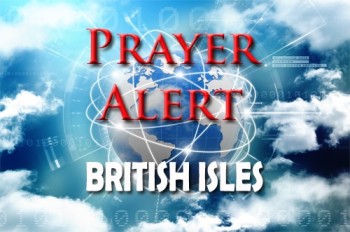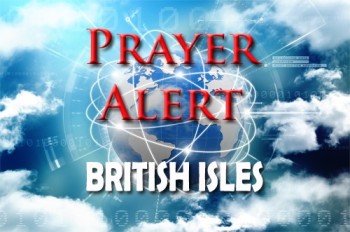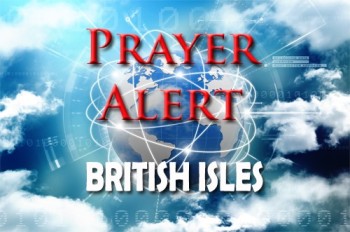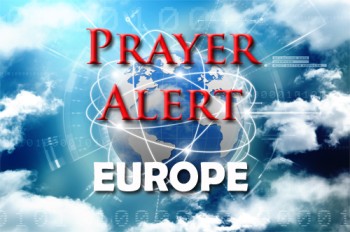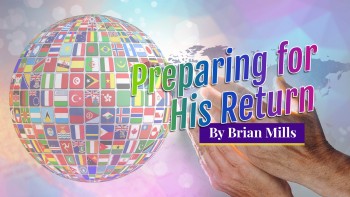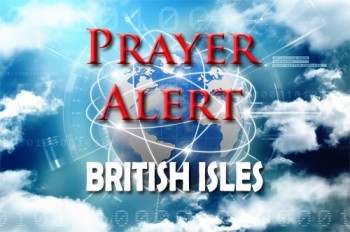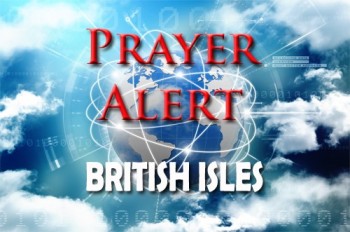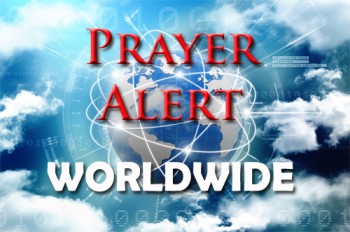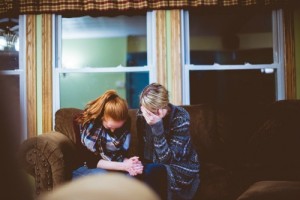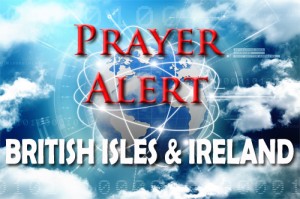Displaying items by tag: Reconciliation
Northern Ireland: Bloody Sunday trial will proceed
The long-delayed trial of 'Soldier F’, the only veteran to face charges over the Bloody Sunday shootings in 1972, will proceed after a Belfast judge ruled key statements from fellow soldiers admissible as evidence. Soldier F is accused of murdering James Wray, 22, and William McKinney, 26, and attempting to murder four others during the civil rights march in Londonderry. Judge Patrick Lynch confirmed that contemporaneous statements to the Royal Military Police and the Widgery Tribunal could be used, despite defence claims they were inadmissible. Prosecutors admitted these statements are the only evidence linking Soldier F directly to the shootings. Relatives of the victims welcomed the ruling with relief, while veterans’ groups expressed disappointment, fearing unfair treatment compared to IRA members who escaped prosecution under the Good Friday Agreement. Bloody Sunday saw 13 protesters killed, a defining moment in Northern Ireland’s Troubles, later deemed 'unjustified and unjustifiable' by the Saville Inquiry. Soldier F, who denies the charges, listened from behind a screen as proceedings continued.
Peace efforts need prayer, Welby tells world leaders
The Archbishop of Canterbury, addressing world leaders at the International Meeting for Peace in Paris, emphasised the critical role of prayer in achieving peace. Speaking in French, he said that peace efforts in today’s world cannot succeed without prayer, which leads to reconciliation and hope. Referring to the 56 active global conflicts, including Ukraine, he lamented the ongoing death of innocents and the rise in fear and hatred. He also described climate change as an undeclared war against creation, contributing to other conflicts. He believes that prayer aligns us with God's will for peace, justice, and the common good, inspiring imagination to address crises like political breakdown and community hostility. He stressed that reconciliation is a long-term process requiring truth-telling, healing, and mutual acceptance. Other speakers included France's chief rabbi, Haïm Korsia, and Afghan refugee Lina Hassani. The Archbishop urged continued global prayer for reconciliation and lasting peace.
Archbishop launches reconciliation programme for youth
Justin Welby has launched the Difference programme for church youth groups through his Reconciliation Ministry. This initiative aims to nurture a new generation of peacemakers, building on its success in churches, prisons, and secondary schools. Difference draws on Christ’s teachings and expert peacemakers' wisdom, equipping young people with three practical habits: Be Present, Be Curious, and Reimagine. These habits are designed to foster empathy, understanding, and resilience in building relationships and managing conflicts. The programme, developed with input from youth workers and education experts, includes immersive sessions which engage young people in meaningful dialogue and practical exercises. It was piloted in several churches across the country. To celebrate the launch, Archbishop Welby hosted over 400 guests at Lambeth Palace. The event featured a procession by young people highlighting global and local divisions, followed by activities and a performance by the Christ’s Hospital choir. The evening included football skills sessions, prayer activities, and opportunities to explore the Difference materials, emphasising the importance of reconciliation and peace.
Prayer summit - a special moment
Ukraine was very much on everyone’s hearts, and some Ukrainian sisters and young Russian brothers came to the conference. It was not an easy situation for them, a Ukrainian sister expressed the deep wounds and pain caused to Ukrainians through the losses they are suffering day in and day out, by Russians. Then a young Russian Christian who helps drug addicts and social fringe groups testified how his fellow ministry leaders had suffered persecution after scrutiny by Russian authorities. In their own ways, both sides were ‘victims’ of the same autocratic state, and their pain was palpable. We prayerfully surrounded them, and during our intercessions, they were eventually able to reach out and embrace one another. It was deeply moving to witness these tentative steps of reconciliation between Ukrainian and Russian Christians. Reconciliation at the cross is a powerful weapon against the ‘real enemy’. Our struggle is not with flesh and blood but against the spiritual forces of evil in the heavenly realms.
Editorial: ‘Preparing for His Return’ – Brian Mills
What a subject! What a year! What an occasion! To be able to connect praying people around the world has never before in history been possible until recently. And this has all gathered pace in the season we are in as the world is alarmed and the church is awakened by this coronavirus pandemic.
For sure, we are all living through times of unparalleled challenges and change. Countless millions around the world are affected – but how we each respond will determine the outcome. It’s not just about the pandemic, but it’s also about our ways of life, our economies, our future and that of our children. So how should the church respond?
One night king Solomon had a divine encounter, in which God said “When I shut up the heavens so that there is no rain, or command locusts to devour the land, or send a plague among my people, if my people, who are called by name, will humble themselves and pray and seek my face and turn from their wicked ways, then I will hear from heaven, and I will forgive their sin and will hear their land” (2 Chronicles 7.13-14).
In the past year or so Australia and parts of the United States have had unprecedented lack of rain, and consequently huge bush fires displacing thousands of people. East African countries have suffered from plagues of locusts described as of “biblical proportions”. Parts of China and South Asia have experienced catastrophic and devastating floods. And the plague of “Covid 19” has claimed the lives of over a million people and affected the lives and livelihoods of many millions more. So how should the church respond?
Some parts of the world continue to suffer appallingly because of ongoing conflict and terrorism. Others have had to face up to ongoing discrimination between black and white on the back of the historic slave trade. Meanwhile a more modern slavery scandal has been largely unnoticed. Human trafficking of many thousands of people across borders – regarded as “refugees” or “migrants” - include thousands of children and young people, being sold both for sexual exploitation and for what is termed the “harvesting” of human body parts - a practice that is both sickening and inhumane. Political upheaval also continues in many nations. I’ve lost count of the number of corruption investigations and trials that are in progress among national leaders in multiple countries. So how should the church respond?
I think we need to fall on our knees before God and cry out – “God have mercy upon us”.
“But”, some may think, “much of this is not church sin.” No, but we are part of this world. The apostle Paul said “we are all God’s offspring.. and commands all people everywhere to repent” (Acts 17.29-31). Repentance is not an option – it is a command! And if we as God’s chosen followers – whether Jewish or Christian – do not set the example, how can the rest of the world be expected to follow suit? God watches and waits for those who are in tune with Him to “stand in the gap”.
We can start by repenting of our own personal sin and sins. “If we say we have no sin, we deceive ourselves and the truth is not in us” (1 John 1. 8-10). Solomon (a king who was flawed in character, but nevertheless knew what God required) reminded us in Proverbs 6 that there are seven things that God hates – haughty eyes, a lying tongue, hands that shed innocent blood, a heart that devises wicked schemes, feet that are quick to rush into evil, a false witness who lies and anyone who stirs up conflict in the community.
And then there are the many corporate sins that exist – both current and historic. Sin that is not repented of is not swept under the carpet. Heaven remembers them. King David had to deal with the sin of his predecessor, Saul, when he shed the innocent blood of the Gibeonites (see 2 Samuel 21), and Jesus accused the Jewish leaders of His day of the unrepented sins of history, including the killing of their prophets hundreds of years previously - “and so upon you will come all the righteous blood shed on earth” (see Matthew 23 v. 13 onwards, and particularly v.35-36). That is huge!
And then comes this cry from the heart of Jesus and the courts of heaven “how often I have longed to gather your children together, as a hen gathers her chicks under her wings, and you were not willing!” Here is the expression of mercy and love and compassion – but He was unable to show it because there was sin in the way in history, and in them His people.
So how are we, His people, going to respond to this in our day? We need to take the promise within 2 Chronicles 7.14 seriously, and realise that God said He would respond when we do what he looks for. Humble ourselves, Pray, Seek His face, and Turn from our wicked ways. When we do that, perhaps then, God can do what He promises – hear our prayer, forgive our sin and heal our land – wherever we are.
But we need to do that representationally, identifying with the sin and with those who have committed that sin or those sins.
As a European I need to confess and repent of so many things. The shedding of innocent blood in particular. Europe is the most blood-stained Continent in the world, and yet it was the Continent that God called the apostle Paul to come and evangelise. Oh, yes we sent our missionaries around the world, but we ourselves have become spiritually destitute. We have largely turned away from God and embraced a secular way of life. In this Continent various “isms” have been birthed and then influenced the rest of the world – existentialism, humanism, secularism, Communism, Nazi-ism, materialism, and so on. And then there are the church divisions that have been both historic and contemporary – are we prepared to own up to them?
As a white British male, there are many sins I need to confess, acknowledge and turn from - to do with racial superiority or colonialism – the list is endless. And for those from other parts of the world there may be reciprocal ingrained attitudes that may have been caused by those corporate sins. There may be tribal, or nationalistic or political hatreds and inbred, generational or family prejudices and resentments, giving rise to ongoing acts or attitudes of revenge.
What happens when we do what God is asking of us? Then He begins to bring forgiveness into marred human relationships and between tribes and nations. When we apologise in public for the sins of our group or nation, something shifts. Those on the receiving end of such apology frequently testify “something broke in my spirit” or “I never before realised I had such antagonism towards you or your nation – but God has revealed it and dealt with it”. If that happens at the human level – what has also happened in heaven?
Many of us in the International prayer and Reconciliation movements have numerous stories of what God has done as a result of public acknowledgement of sin coupled with genuine repentance. Tears have flowed, forgiveness has been expressed, relationships healed. Wars have ceased, enemies have been reconciled, land has been healed – literally, and national change has occurred. Politicians and royalty have made public apologies, changed national policies, engaged in acts of retribution. And if that has happened at national level and in the hearts of ordinary people, we can only conjecture as to how our Father in heaven has felt. For sure, He will know that the sacrifice of His Son on the Cross has not been in vain, but has accomplished all this and much more.
But there is more that God will do. He wants the whole world to know of His love. One of my mentors was the late Dr. J Edwin Orr. He used to ply me with stories of what happened in times of revival or spiritual awakening. He would frequently point out that every revival in history has been preceded by “extraordinary prayer” and “produced an unusual conviction of sin, resulting in repentance, confession, reconciliation and restitution, with great concern for the salvation of sinners near at hand and far away.”
Isn’t that what we are looking for in this season? Isn’t that what God is also looking for? The timing of God’s answers is in His hands. We can’t insist that He does what He promised. But we can be sure that He will.
Many books have been written telling some of the stories – too many to be listed here! But maybe, if you have time to watch, this dialogue produced some years ago for an American TV channel might help to whet your appetite.
Let’s humble ourselves, pray, seek His face, and turn from our wicked ways. Then perhaps He will turn the hearts of many towards His Son before His Return.
Brian Mills – Interprayer | International Prayer Connect Leadership Team
Bishops’ open letter on Brexit
Twenty-five CofE bishops have issued an open letter on the prospect of a 'no-deal' Brexit and the need for national reconciliation, notwithstanding the prorogation of Parliament. They are concerned about political polarisation and the use of language that appears to sanction hate crime, and the ease with which lies can be told and misrepresentation encouraged. Leaders must be honest about the costs of political choices, especially for those most vulnerable. The Irish border is not a mere political totem, and peace in Ireland is not a ball to be kicked into touch by the English: respect for the concerns on both sides of the border is essential. The levels of fear, uncertainty and marginalisation in society among poor people, EU citizens in the UK, and UK citizens in Europe must be listened to and respected. For the full text of the letter, click the ‘More’ button.
The ministry of reconciliation, part 2
Last week we asked God to unlock doors that are bolted, and change hearts and minds to see God’s way forward as we await the outcome of the Conservative leadership election. This week, let us continue to focus our prayers on bringing reconciliation to divided families, divided communities, and divided nations within the UK. Pray a blessing on those who have a different Brexit view from you. Pray that our politicians will choose their words carefully and that they will engage in constructive discussion, not negative argument - seeking to reach an agreement - not score party political points. Pray for a divine breakthrough - a 'suddenly' of God, bringing a Brexit solution that will last. May we move on and focus on other pressing issues for our nation. Pray also for a blessing over Europe. May God move mightily in bringing revival to the church and transformation to nations.
Afghanistan: costs of war and peace
On 12 March, the US and Taliban finished their longest set of talks to date. After sixteen days of negotiating, the US special representative for Afghanistan reconciliation tweeted, ‘Peace requires agreement on four issues: counter-terrorism assurances, troop withdrawal, intra-Afghan dialogue, and a comprehensive ceasefire. We’re now “agreed in draft” on the first two.’ This is a positive development; previously they had only ‘agreed in principle’. The next step is for them to consult with decision-makers for approval of the draft agreement so that it can be finalised. This would pave the way for direct talks between the Taliban and the Afghan government, to address remaining issues. However, these talks have not involved the government, so President Ashraf Ghani’s administration is feeling excluded and suspicious.
3 things to pray for broken families
I am so privileged to be part of a church that has transformation at the very heart of it. My husband is an associate minister at Victory Outreach church in Manchester. Our church has victory homes for men and women who are in a life of addiction and crime.
Last weekend, I was at our victory homes Christmas dinner where families of the people that are in the recovery programme are invited to come and celebrate. Many of the people in a drug lifestyle have tense, if any relationship, with their families due to their habit. Many families have given up on their loved ones, thinking that they will never change.
Through the recovery programme, we see many addicts set free from drug addiction and people healed of hepatitis and hearts healed from the roots that caused them to spiral out of control in the first place. It is only through meeting with Jesus and allowing him to work on a deep level that real, lasting transformation happens.
Jeremiah 30;17 ‘I will restore you to health and heal your wounds,’ declares the Lord, ‘because you are called outcast, Zion for whom no one cares.’ God’s heart is to not only heal us but also to restore broken families. We all want to be loved and have somewhere to belong, that’s why God created the family. So, let’s pray for struggling families for:
- Reconciliation – that in the midst of the hurt and the anger that God will release love, positivity, and hope and allow them to take steps towards fixing the relationship.
- Forgiveness – allow those involved to realise the mistakes that have been made and ask for forgiveness. Ask for negative feelings and hate to be removed and replaced with a love and kindness and a willingness to trust God. He works ALL things out for good.
- Communication – for God to open the lines of communication and for them to think about what they speak over each other. Replace anger and hate with love and respect. There are life and death in the tongue!
Natasha Ruddock
Communications Manager
Armistice centenary celebrated
On 11 November 1918, the Armistice was signed, bringing an end to the First World War. Big Ben sounded in Parliament Square to ring in the news as thousands gathered to celebrate, sparking three days of jubilation across Britain. Prime minister Lloyd George told the House of Commons, ‘I hope we may say that thus, this fateful morning, came an end to all wars.’ The national mood was not exclusively joyous. Wounded veterans met the news in silence, reflecting on a victory that had cost so many lives. Over the next two years, 5,000 war memorials were erected in towns and villages, as reminders of the past and warnings to future generations not to repeat the mistakes of history. This year, appropriately, Armistice Day coincides with Remembrance Sunday. The two-minute silence will commence at precisely 11 am, marking exactly 100 years to the second since the war came to an end.
